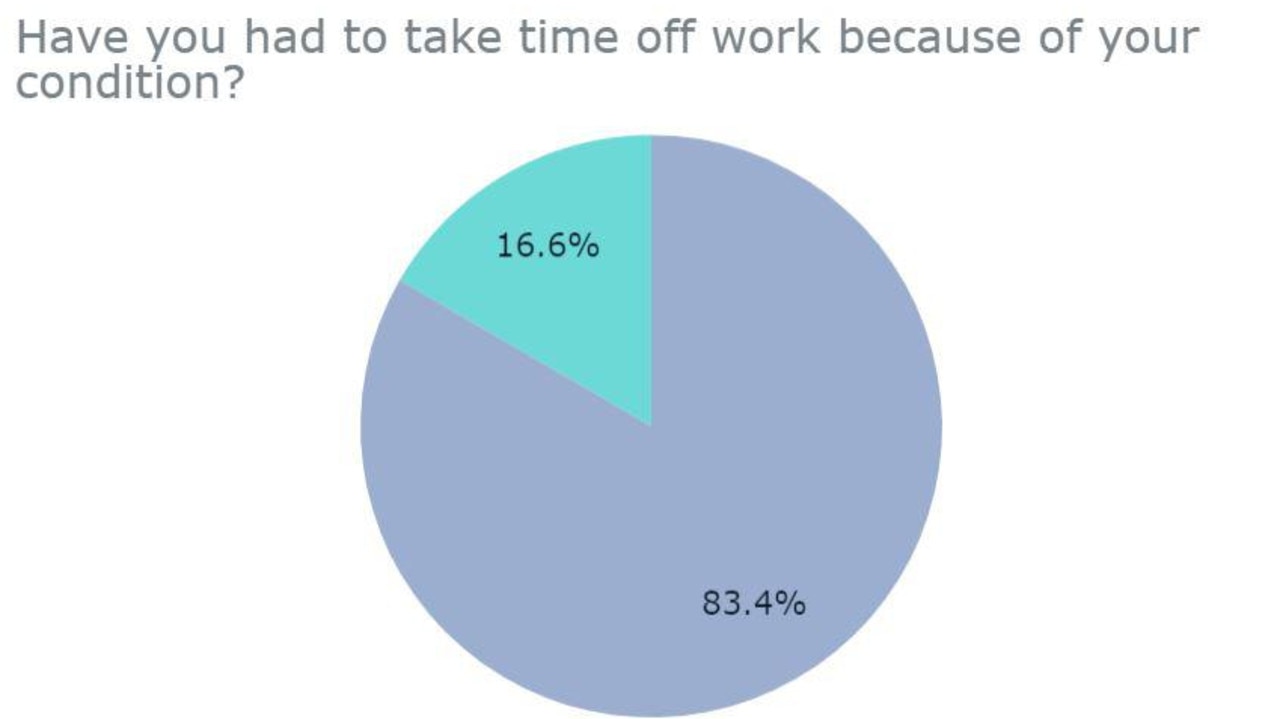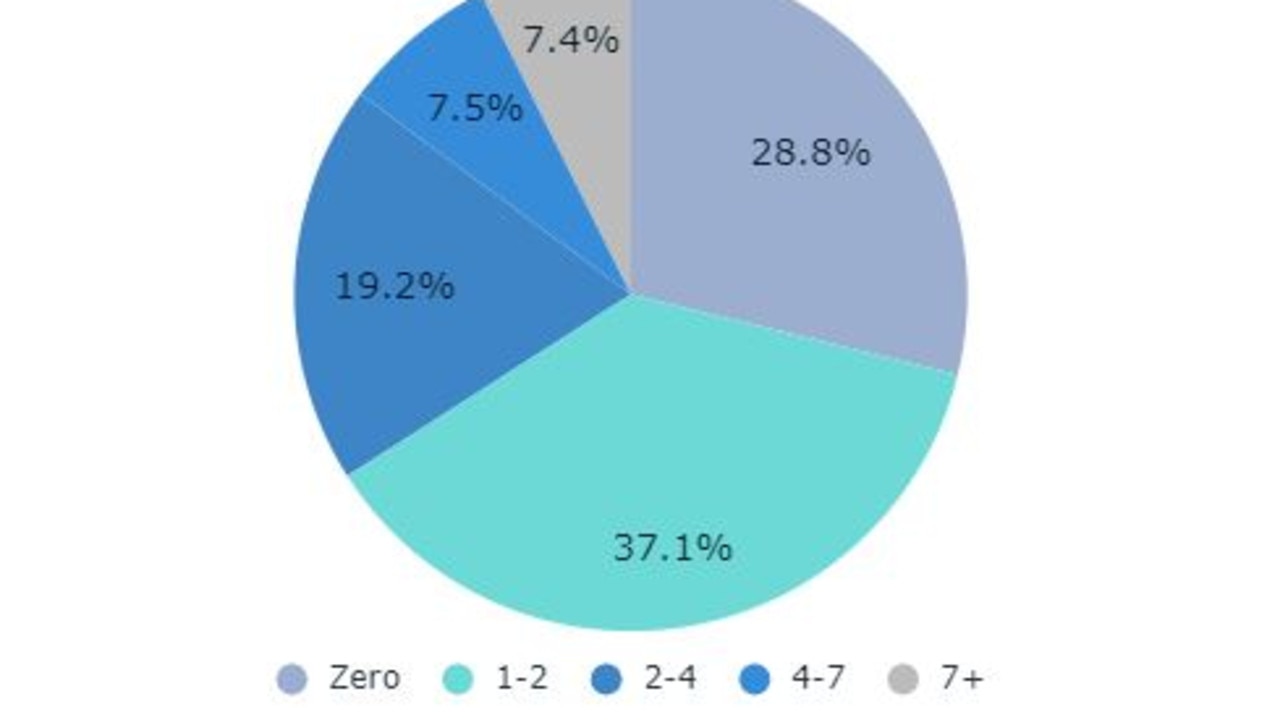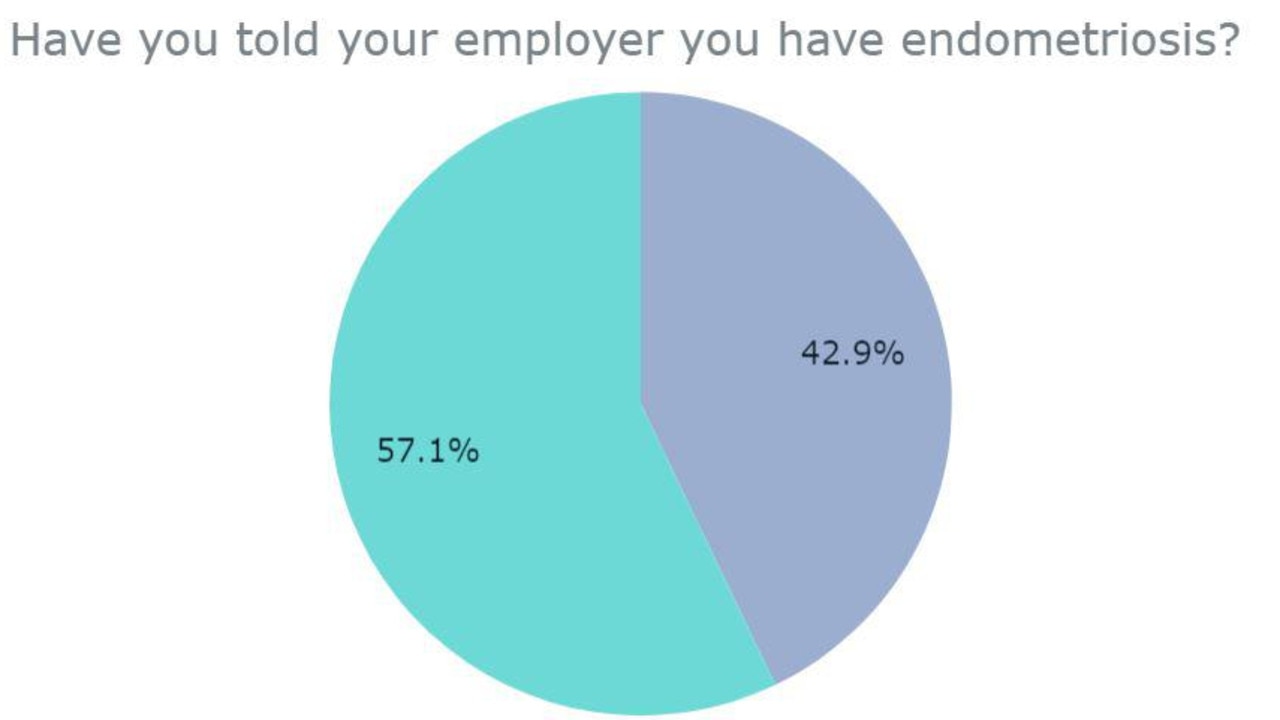News.com.au survey exposes how much Australia needs to change
A new survey has revealed the exact reason Australia needs to change – and it is about bloody time that it does.
A new survey has given comprehensive insight into the pain and suffering an estimated one million Australian women with endometriosis deal with, and the results show it’s About Bloody Time things changed.
Endometriosis – a chronic, incurable disease in which tissue similar to the lining of the uterus grows outside it causing severe pelvic pain and fertility issues – affects one in nine Australian women. But despite its prevalence, more than half of those suffering feel they haven’t been taken seriously when seeking treatment and diagnosis, news.com.au’s survey reveals.
More than 1700 Australians who suffer from endometriosis participated in news.com.au’s survey, conducted last month. Asked if they had been taken seriously by doctors, 54.5 per cent of respondents said they had mostly negative experiences when seeking medical help for their condition.
Shockingly, 17.3 per cent said they have never been taken seriously when seeking medical help for their condition.
Medicare is failing women and it’s About Bloody Time things changed. Around one million suffer from endometriosis. There is no cure. Help is hard to come by and in rural or regional areas, it’s virtually impossible. We are campaigning for longer, Medicare-funded consultations for endometriosis diagnosis and treatment.

News.com.au readers revealed they had been denied pain medication, labelled as drama queens and referred for psychiatric assessment by doctors dismissing their crippling period pain caused by endometriosis.
The survey also exposed one of the shameful consequences of the dismissal women who present with pelvic pain – the time it takes to be diagnosed with endometriosis. Almost half of women suffering from endometriosis surveyed by news.com.au – 45.4 per cent – took more than six years to be diagnosed. Only 32.23 per cent were diagnosed in under six years and 22.4 per cent who believed they had the condition were still awaiting a formal diagnosis.
Women also revealed the financial toll of their condition and its treatment and diagnosis, with some reporting six-figure costs. More than half, or 52.2 per cent of respondents, reported spending more than $5000 on their treatment and about 20 per cent had spent more than $20,000. Almost one in 10 (8.8 per cent) had spent more than $50,000 including 71 who had spent over $100,000.


Detailing their treatment, 71.1 per cent of respondents said they had undergone surgery. Over a third (34 per cent) said they had undergone more than two surgeries, including 7.4 per cent who had more than seven surgical procedures.
As well as spending money on treatment, Australian women also revealed having to take significant amounts of time off work because of their endometriosis. An astonishing 83.4 per cent of respondents said they had to take time off work due to their endometriosis, with many hiding the reason for the absence from their employer. Of those, 57.1 per cent had not told their employer they suffer from the condition.
Respondents revealed endometriosis can also have a major impact on intimate relationships, with 75.5 per cent saying it has had a negative impact on their sex life and romantic connections.
The revelations have prompted Australia’s news.com.au to launch a petition to push for longer, Medicare-funded consultations for endometriosis diagnosis and treatment, so women can get the help they need, no matter where they live.
News.com.au editor Kerry Warren said is was unacceptable that one million Australian women had spent years of their lives being told endometriosis was just bad period pain.
“Endo is not just bad period pain. It’s a chronic, often lifelong condition, and there is no cure. It affects every part of a woman’s life, from relationships and work to their ability to start a family,” she said.
“But getting help is hard – for women from rural and regional Australia, it’s almost impossible.
“Women are tired of suffering in silence. Of being unable to access appropriate medical care, or being thousands of dollars out of pocket when they do. It’s about bloody time this changed.”
We need 20,000 signatures by March 8, International Women’s Day. You can sign our petition HERE.
About Bloody Time is an editorial campaign by news.com.au that been developed in collaboration with scientists recommended by the Australian Science Media Centre, and with the support of a grant from the Walkley Foundation’s META Public Interest Journalism fund.




